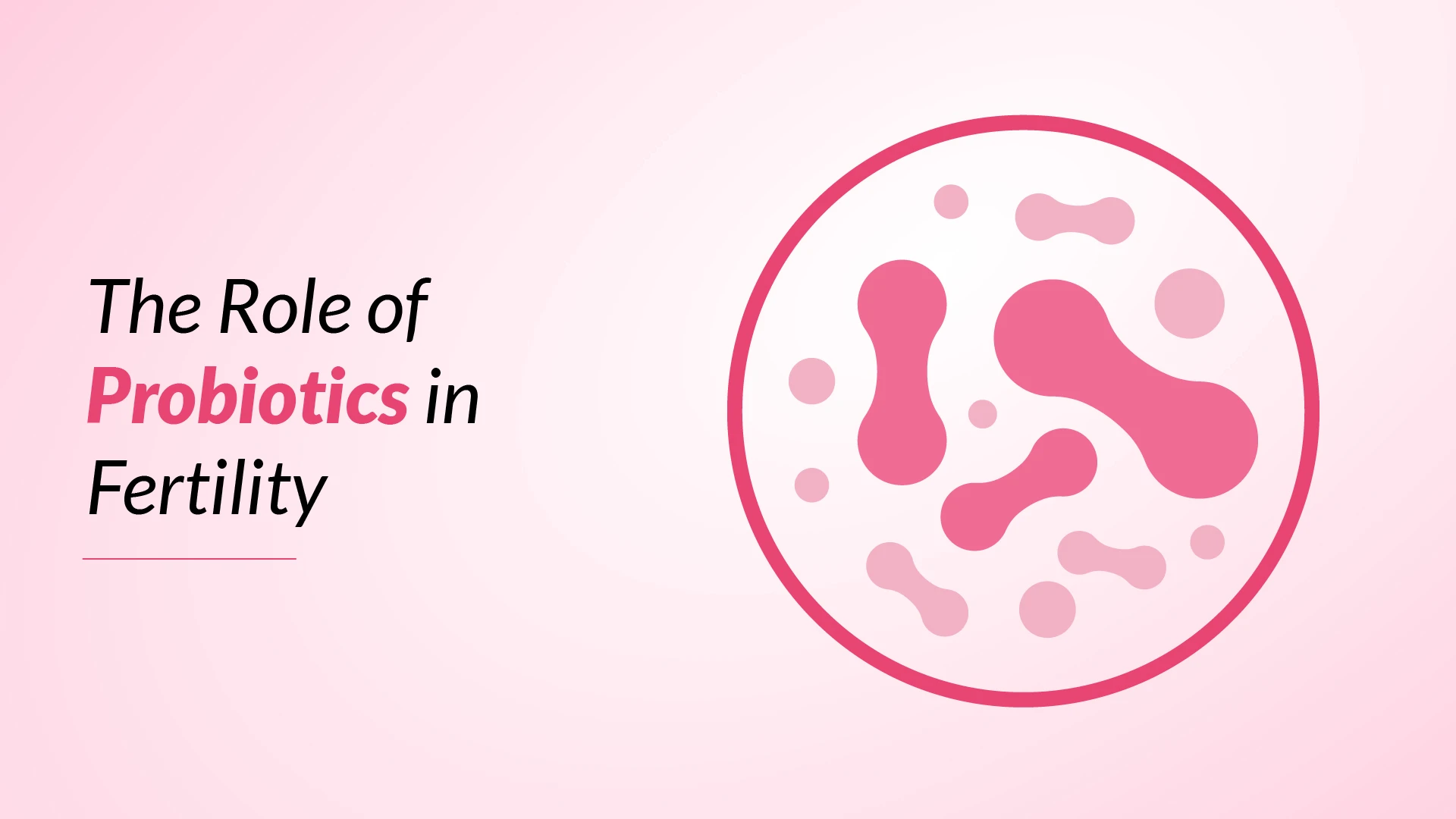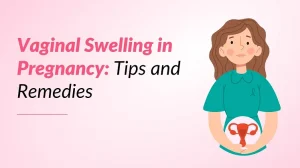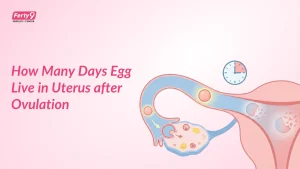The human body hosts trillions of beneficial bacteria that are crucial in overall health and well-being. Recent scientific research has revealed a significant connection between probiotics and fertility, showing how these beneficial microorganisms support reproductive health. Studies demonstrate that the right balance of gut bacteria can influence hormone regulation, immune system function, and reproductive health outcomes.
Probiotics support fertility through multiple mechanisms, including maintaining vaginal health and promoting optimal gut function. These beneficial bacteria, particularly lactobacillus strains, help create an environment that supports conception and healthy pregnancy. Doctors now recognise the importance of probiotic supplementation as part of a comprehensive approach to fertility support, especially for women experiencing reproductive health challenges or preparing for assisted reproductive procedures.
Also read: Tips for How to Increase Ovulation Naturally
What is Probiotics?
Probiotics represent a fascinating category of live microorganisms that provide health benefits when consumed in optimal amounts. These beneficial bacteria and yeasts work as nature’s tiny helpers, supporting various bodily functions and maintaining optimal health.
The term “probiotic” combines Latin and Greek words meaning “for life,” reflecting their vital role in human health. These microscopic allies primarily consist of seven core genera, with Lactobacillus and Bifidobacterium being the most commonly used in probiotic products.
These beneficial microorganisms function through several mechanisms:
- Supporting digestive health by crowding out harmful bacteria
- Producing beneficial compounds like short-chain fatty acids
- Strengthening the gut barrier
- Helping in vitamin synthesis
- Supporting immune system function
- Assisting in nutrient absorption
While probiotics naturally occur in fermented foods, they’re also available as dietary supplements. However, it’s important to note that not all products labelled as probiotics deliver proven health benefits. The effectiveness of probiotics depends on specific strains and the quantity consumed, making it essential to choose products carefully based on individual health needs.
These beneficial microorganisms can temporarily colonise the human gut in unique patterns, varying based on the individual’s existing microbiota and the specific probiotic strain used. Through their various mechanisms, probiotics contribute to maintaining a healthy balance in the body’s microbiome, supporting overall wellness and specific health conditions.
The Gut-fertility Connection
Recent scientific research has unveiled a remarkable connection between gut health and fertility, establishing what experts now call the “gut-fertility axis.” The gut microbiome works like an endocrine organ, influencing reproductive health through various sophisticated mechanisms.
The relationship between gut health and fertility operates through several key pathways:
- Hormone Regulation: The gut microbiome helps regulate oestrogen levels through specific enzymes
- Immune System Support: Beneficial bacteria maintain balanced immune responses crucial for fertility
- Nutrient Absorption: Proper gut function ensures optimal absorption of fertility-supporting nutrients
- Inflammation Control: Healthy gut bacteria help reduce systemic inflammation that can impact fertility
- Vaginal Microbiome Support: Gut health directly influences vaginal bacterial balance
The gut microbiome’s influence extends beyond basic digestive functions, playing a crucial role in reproductive health outcomes. When gut bacteria become imbalanced, it can lead to various fertility challenges, including hormonal disruptions and reproductive disorders. This connection is particularly significant for women experiencing fertility difficulties or preparing for assisted reproductive procedures.
Research has shown that maintaining optimal gut health through probiotic supplementation can support reproductive wellness. The presence of beneficial bacteria, especially Lactobacillus species, helps create an environment conducive to conception and healthy pregnancy. Understanding this connection has led doctors to increasingly consider gut health as a fundamental aspect of fertility treatment protocols.
How Probiotics Support Fertility
Scientific research has revealed multiple mechanisms through which probiotics support fertility health. These beneficial bacteria work through sophisticated pathways to enhance reproductive function in both men and women.
The primary mechanisms of probiotics in supporting fertility include:
- Production of antimicrobial compounds that maintain reproductive tract health
- Antioxidant effects that protect reproductive cells
- Reduction of harmful inflammation
- Enhancement of nutrient absorption
- Modulation of immune system responses
- Competition with harmful bacteria for nutrients and binding sites
Studies demonstrate that probiotic supplementation significantly improves sperm parameters, including motility, concentration, and morphology. In the female reproductive system, probiotics help maintain optimal vaginal pH and bacterial balance, creating an environment conducive to conception.
The antioxidant capacity of probiotics plays a crucial role in protecting reproductive cells from oxidative stress. Research shows that probiotic treatment leads to reduced levels of harmful compounds like malondialdehyde while increasing total antioxidant capacity.
What makes probiotics particularly appealing as a fertility support option is their safety profile and accessibility. Clinical studies have confirmed that probiotic supplementation is both safe and affordable, making it an attractive option for individuals seeking natural fertility support.
Lactobacillus species, in particular, have shown remarkable benefits in supporting reproductive health. These beneficial bacteria maintain the delicate balance of the vaginal microbiome, which is essential for optimal fertility outcomes and successful conception.
Also read: How Iron Deficiency Impacts Fertility
Can Probiotics Boost Fertility?
While research into probiotics and fertility continues to evolve, current evidence presents a complex picture of their effectiveness. Clinical research examining the impact of probiotics on fertility has shown varying results, with some promising outcomes emerging in specific areas.
Research indicates that probiotics may influence fertility outcomes in several ways:
- 57% reproductive success rate observed in studies using Lactobacillus salivarius
- Significant improvements in sperm motility with male probiotic therapy
- Higher pregnancy rates in IVF patients with Lactobacillus-dominant vaginal microbiome
- Reduced bacterial vaginosis rates, which affects approximately 19% of women with fertility challenges
- 90% recovery rate in women with bacterial vaginosis after probiotic treatment
Despite these encouraging findings, scientists emphasise that current data remains insufficient to recommend systematic probiotic use for treating asymptomatic dysbiosis before IVF treatments. The relationship between probiotics and fertility presents unique challenges for researchers, particularly when studying endometrial microbiota, which requires invasive sampling procedures.
Studies focusing on infertile populations face additional complexities, including the need to control variables such as ovarian stimulation timing, embryo transfer methods, and gamete origins. While Lactobacillus-containing probiotics show promise for vaginal and endometrial health, more high-quality randomised studies are needed to definitively establish their benefits for couples pursuing assisted reproduction.
Also read: Top Vitamins for Boosting Fertility
Role of Lactobacillus Probiotic
Lactobacillus probiotics stand as nature’s guardians of vaginal health, playing a pivotal role in maintaining reproductive wellness. These beneficial bacteria create a favourable environment for fertility through multiple sophisticated mechanisms that protect and support reproductive function.
The protective benefits of vaginal Lactobacillus operate through several key mechanisms:
- Production of lactic acid maintaining vaginal pH between 3.5-4.5
- Generation of hydrogen peroxide for antimicrobial protection
- Creation of bacteriocins that inhibit harmful bacteria
- Formation of protective biofilms on vaginal surfaces
- Production of biosurfactants that prevent pathogen attachment
Research demonstrates that Lactobacillus-dominant vaginal environments correlate with higher pregnancy success rates, particularly in women undergoing assisted reproductive treatments. Studies have shown that women with Lactobacillus-dominated microbiomes experience significantly better implantation rates and pregnancy outcomes.
The safety profile of Lactobacillus probiotics makes them particularly attractive for fertility support. Clinical studies have confirmed their effectiveness in treating various reproductive tract conditions, with success rates reaching up to 90% in cases of bacterial vaginosis. These beneficial bacteria can restore vaginal microbiome balance within six days of supplementation, making them an efficient option for reproductive health support.
Different Lactobacillus strains offer unique benefits, with L. crispatus, L. gasseri, and L. rhamnosus showing particular promise in supporting fertility outcomes. These strains demonstrate a superior ability to adhere to vaginal epithelial cells and produce protective compounds that maintain reproductive tract health.
Probiotics and Assisted Reproductive Technology (ART)
The integration of probiotics into Assisted Reproductive Technology (ART) represents a significant advancement in fertility treatment. Recent clinical studies have demonstrated remarkable improvements in ART outcomes when combining probiotic therapy with traditional fertility treatments.
Research shows impressive results in women undergoing ART with probiotic supplementation:
- 36% increase in positive pregnancy tests
- 88% improvement in Day 5 embryo transfers
- 67% higher live birth rates compared to control groups
- 40% success rate in women with healthy vaginal microbiome versus 8% in those with bacterial vaginosis
The relationship between vaginal microbiota and IVF success has become increasingly clear. Studies indicate that the presence of Lactobacillus species at the time of embryo transfer significantly influences implantation rates. Women with Lactobacillus-dominated vaginal environments demonstrate superior reproductive outcomes during ART procedures.
Clinical evidence suggests that probiotic supplementation, particularly with Lactobacillus crispatus, can enhance ART success rates by maintaining optimal vaginal pH and creating a protective environment for embryo implantation. The timing of probiotic administration appears crucial, with studies indicating that a six-day supplementation period before embryo transfer may be optimal for establishing beneficial bacterial colonisation.
These findings have led fertility specialists to consider probiotic therapy as a valuable component of ART protocols, particularly for women with previous unsuccessful attempts or those with known microbiome imbalances. However, doctors emphasise the importance of individualised treatment approaches, as responses to probiotic supplementation can vary among patients.
Find Hope and Solutions for Infertility Problems—Explore Our Comprehensive Services
IUI Treatment
ICSI Treatment
PICSI Treatment
Fertility Preservation Service
Blastocyst Culture & Transfer Treatment
Genetic Screening & Testing
Conclusion
Scientific research clearly shows probiotics serve as powerful allies in reproductive health. These beneficial bacteria work through multiple pathways to support fertility, from maintaining optimal vaginal pH to enhancing nutrient absorption and reducing inflammation. The remarkable success rates seen in clinical studies, particularly with Lactobacillus strains, demonstrate how probiotic supplementation can make a real difference in fertility outcomes. Studies consistently show improved pregnancy rates and better reproductive health markers when beneficial bacteria maintain proper balance in both gut and reproductive systems.
Probiotic supplementation offers a safe, natural approach to fertility support that works alongside both traditional and assisted reproductive treatments. Doctors now recognise probiotics as valuable tools in fertility care, backed by impressive clinical results showing up to 67% higher live birth rates in some ART procedures. This growing body of evidence points to a future where probiotic therapy becomes a standard part of fertility treatment protocols, offering hope to couples facing reproductive challenges while providing an accessible option for those seeking to optimise their fertility naturally.





























